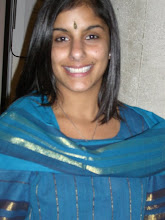Slightly exhausted and overwhelmed by the 98-degree weather outside, my first full day in Hashmi Shamali consisted of Sasha and I walking around to local stores and markets picking up materials and food we would be needing for CRP events later in the week. While this may not have been the most exciting or enthusiastic day of our lives due to my sleep deprivation and Sasha's ongoing cold, there were two distinct things that I noticed during our entire walk around town.
Smiles are universal! From the instant we left CRP and began walking, children everywhere would smile and say hello both in English and Arabic. It did not seem to matter whether they thought I was American, Jordanian, or of any other nationality for that matter, kids are kids and smiles are smiles. I also want to say that even if these children had no idea who I was or why I was there, their faces projected the most sincere smiles I have ever seen, as if I was their best friend and they had known me forever.
In combination with my own personal experience and knowledge, it is also important to me that I attempt to translate some portion of my academic learning to better understand and analyze the situations I encounter abroad. Last semester when participating in an education for international development class at American University, we spent a great deal of time discussing what is best known as "the youth bulge". This theory, coined by Gunnar Heinsohn in 1990 argues that countries where there is a large and concentrated population of young adults generally leads to higher levels of unemployment, and an increased overall propensity towards civil conflict as a result of competing interests and limited resources. After gaining a basic understanding of this theory, our class began debating whether or not this so called "youth bulge" is actually a problem. We learned that while some international development programs see a rapid growth of working-aged youth as a problem and disruption to society for the reasons mention above, others see these youth as the key to a brighter future, and I not agree more.
Children and youth in general know no differences except those that are learned. While I don't want to say that "you can't teach an old dog new tricks", there is an exceptional resilience and universality that comes with being young and possessing a natural ability or tendency to seek common ground rather than trying to find and judge based our inherent differences. To connect this back to my first day in Amman, seeing all of these children smiling and communicating with me regardless of my age, ethnicity, or political beliefs, reassures me of the promise and hope that lies within a young population. Most importantly this promise ad hope has the ability to, if nurtured not criticized, transform a nation's future from the bottom up.
With regards to my second major observation upon arrival in Amman, this one is a bit more obvious but sends just as important of a message as the first. Palestine is everywhere! Although I am constantly involved in great number of Israeli-Palestinian conflict resolution projects operating out of the U.S. and Palestine, it is quite amazing to witness the difference in the portrayal and presence of the Palestinian people and their culture through the eyes of Amman. As I walked around the area with Sasha today, it was honestly refreshing. It was refreshing to see Palestinian shops on every corner, signs advertising Palestinian embroidery without hesitation, and Palestinian people blending into Jordanian society free from the occupation that has taken over their homeland. While I fully understand that leaving Palestine to Jordan is far from a solution to the conflict (most Palestinians should be so lucky as to leave their homes without the threat of violence), it is truly encouraging to see, first hand that Palestinians are treated as dignified and respectable human beings in other parts of the world. This observation as a whole was yet another reminder that we live in a very diverse and complicated world. Due to the nature of U.S. Israeli relations, Palestinians are often shown in U.S. media to be no more than a violent and relentless group of terrorists. Despite this horrible distortion, there is a strong sense of hope filling my heart as I am staying in a country where Palestinians are able to walk and talk without this violent image overtaking their identities.
Subscribe to:
Post Comments (Atom)

No comments:
Post a Comment